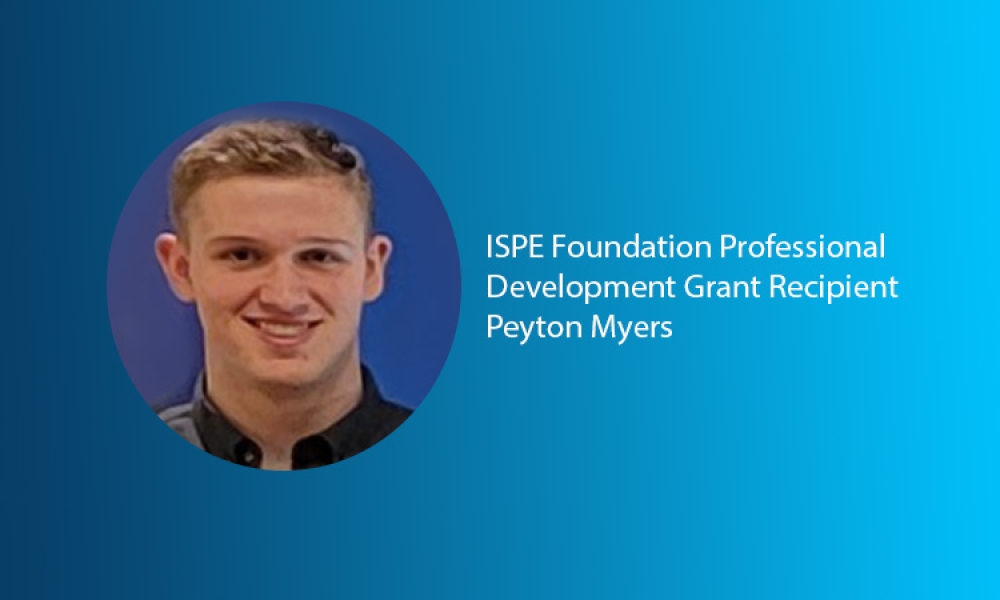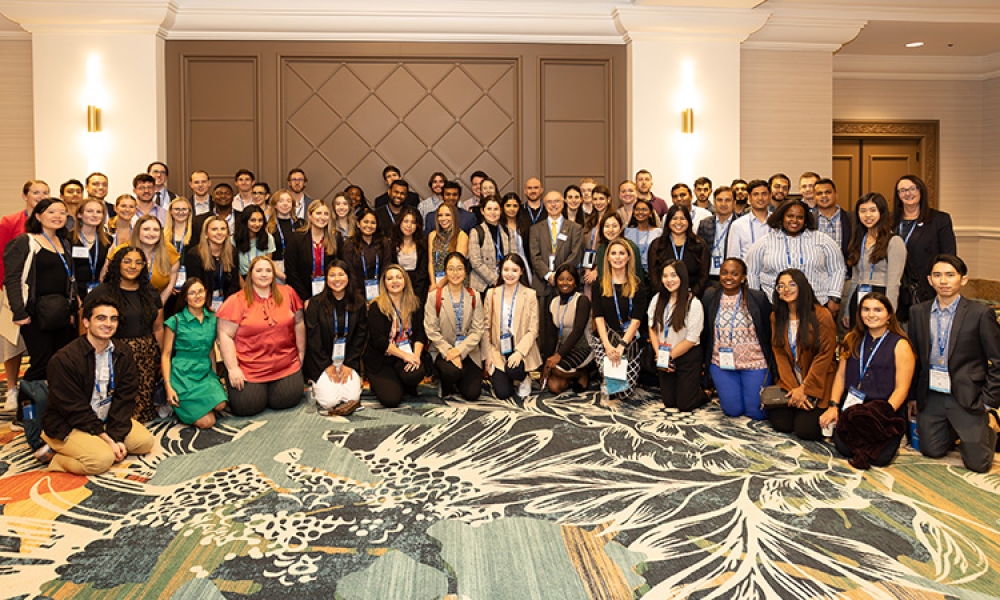2016 Member of the Year Maurice Parlane - Part 2

Pharmaceutical Engineering® magazine met with ISPE’s 2016 Member of the Year, Maurice Parlane, just before he headed out to the Process Validation/Process Validation Stats conference in Bethesda, Maryland, in October 2016. This is an edited version of the conversation.
This article was published in the November/December 2016 edition of Pharmaceutical Engineering® Magazine. Missed Part 1? Catch up now – 2016 Member of the Year Maurice Parlane – Part 1
Who are some of the people who have influenced you throughout your career?
Early on, people who influenced me were Nick Haycocks, Chris Woods, and Simon Shelley, through Glaxo. Also, I met Steve Williams, who did an audit at Glaxo when we were having issues in our laboratory, and he’s sort of been a role model for me during my consulting career. Steve co-founded a large consulting company in Australia—one of the oldest, in fact. He also was active in ISPE as one of the architects of the CPIP [Certified Pharmaceutical Industry Professional] program and he had a run on the international board of directors. Outwardly we looked like we were competitors in business, but we weren’t. We respected each other’s patch and had a common interest in ISPE.
Is he still a competitor?
Actually, a couple of years ago, Steve and I were part a small group that decided to start a business together in Australia. That business is the Centre for Biopharmaceutical Excellence (CBE Asia Pacific). It’s an Australian venture—I am the only New Zealand partner. What’s evolved is quite complimentary. New Wayz continues to operate as Maurice with eight people in tow, and CBE is six Maurices, each with different experience and skills. I’m a generalist in New Zealand, but when I go to Australia or into the Asia-Pacific region, I can focus on what I’m really good at, which is process understanding and validation. I don’t need to do compliance because Steve is that guy, and I don’t need to be an operations specialist, because there’s another guy for that. It fits quite well and it’s nice working in small teams like this on projects. New Wayz is still focused on New Zealand and CBE is focused outward.
How do you keep up with it all?
I love the industry and I really thrive on the technical challenges. This is an industry that doesn’t suffer fools. So when people are interested in finding a solution to a problem, they put resources into it. You’re given technical challenges and you’re also given the opportunity to look at them properly, plus the context of doing good for patients. It’s all good, right?
How do you see your job being good for patients?
My role in New Zealand is about cost and getting the right balance of quality. What happens is that companies recruit from overseas because we don’t have a massive pool of experienced people. Those people often bring big systems that aren’t quite the right fit for a smaller organization—they’re too complicated. Also, experienced people tend to stay in place for a very long time. The company can get to a state I call "vanilla," which is an opportunity for the likes of me to assist to bring about change. But change in a regulated organization is not often easy. If you were to embark on a cost-out program, there could be resistance because the perception is quality takes precedence over cost. Yet that isn’t quite right: It’s about cost in the context of quality. It is very difficult to move an organization that is steeped in compliance, so you need someone who’s credible to be able to say, "Guys, you can do this," or "Guys, you’ve been doing this the wrong way." That is an important role as cost reduction assists to keeps the cost of medicine down. So that’s one aspect. Also, keeping costs down keeps business local, as it’s competitive. The second aspect is from my kids’ perspective: They are patients, and it’s good to be contributing to make sure local manufacturers make decent medicines.
Does the notion of sustainability factor into the work that you do?
Yes, although I probably don’t think of it in the context of the environment. To some extent that is what is interesting in Asia. The value proposition in places like Asia is quite different from the one in the United States. The industry is at a sustainable level in Singapore, Japan, and Australia. But we are really struggling in India, and we’re doing all right in China, but not as well as I think we could. It comes down to the value proposition.
What do you think it should be?
A colleague of mine has a saying: Do you want a $1 tablet or a 10-cent tablet? Just think about that for a minute. When you go to the United States, you want to make a $1 tablet and, if possible, take it to $1.50 or even $2, if it demonstrates quality. In a place like Thailand they already make a 10-cent tablet. If you turn it into a $1 tablet it will be better for the patient, but fewer patients will be able to access it. So the governments and populations of those countries don’t see the value of going toward the $1 tablet, yet we don’t want to sustain the 10-cent tablet either. And fundamentally that is the problem that industry has in Asia: How do we drive those quality and safety initiatives without driving the cost of medicine out of the reach of patients? When I look at China, it seems to me like a market that is going to divide into companies that supply overseas and those that don’t. There’ll be companies making $1 tablets and companies making 10-cent tablets, and the government may be happy with the 10-cent tablets. Because their risk tolerance is different from that of Europe or North America. In my opinion there needs to be a paradigm shift in the way we think about quality of drugs, and in a very cynical way it comes down to tolerance of this risk. We want the highest standards possible, so we’ll make things compliant to a point where we don’t take a risk, but that builds cost. At the end of the day, we really need to get down and deal with management of real and tolerable risk to make medicine supply sustainable. That’s the nub of the problem for industry and ISPE in Asia: recognizing the differences, the diversity, and understanding that we may not want to do it their way, but it may be what’s right for that country.
I imagine it’s a tough lesson to learn. The pharmaceutical industry is traditional, conservative.
You can’t ignore two billion people and you can’t ignore their demands. ISPE can be part of that conversation, that paradigm shift. I have seen trainloads of people traveling to Hong Kong from China to obtain the exact same medicine they can find at home, and pay more for it. Why? They believe the medicine in China is counterfeit. I believe this will happen more across Asia as standards of living improve. The shame is that some of those medicines with the bad names were genuine.
How can ISPE be a part of that conversation?
In Asia, PIC/S is a very big thing. It’s viewed as the gold standard. Helping the industry aspire to and achieve these standards will help. If industry in Thailand, for instance, can show that it is compatible with PIC/S, it will go a long way to diffusing what we have seen in China, where the local industry is not trusted. Because of the rapid pace at which these countries have to adopt PIC/S, they don’t always get it right. I have seen some odd decisions that distract from or deter improvement. Regulators in emerging markets often won’t listen to an individual, but they will listen to ISPE. ISPE is revered in Asia and has an opportunity to influence the regulatory landscape without lobbying. We just have to work out a model to make our knowledge more accessible to industry and regulators in these countries so we can assist to smooth the process.
What’s next for you?
I’m really enjoying what I’m doing. CBE has given me opportunities I never had access to before. I’m relishing the challenges, and this has brought new business to New Wayz, which is great. I’ve become a trainer in process validation and I’m enjoying that, as well as contributing to the Process Validation team and to the RCC [Regulatory Compliance Committee]. I just want to do more of what I have been doing, because it’s what I like to do.
Pharmaceutical Engineering® Magazine: The magazine covers topics important to the global pharmaceutical industry across all sectors, including traditional pharmaceuticals, biotechnology, innovator, and generics. Pharmaceutical Engineering magazine presents valuable information on the latest scientific and technical developments, regulatory initiatives, and innovative solutions to real-life problems and challenges through practical application articles and case studies. Stay connected with the pharmaceutical industry by becoming a member of ISPE and receive Pharmaceutical Engineering magazine delivered to your inbox and by mail.


